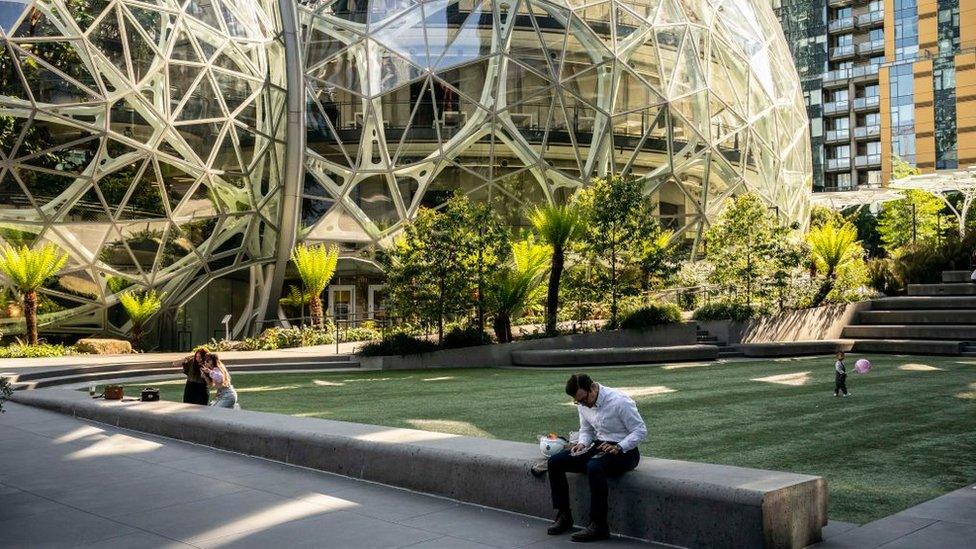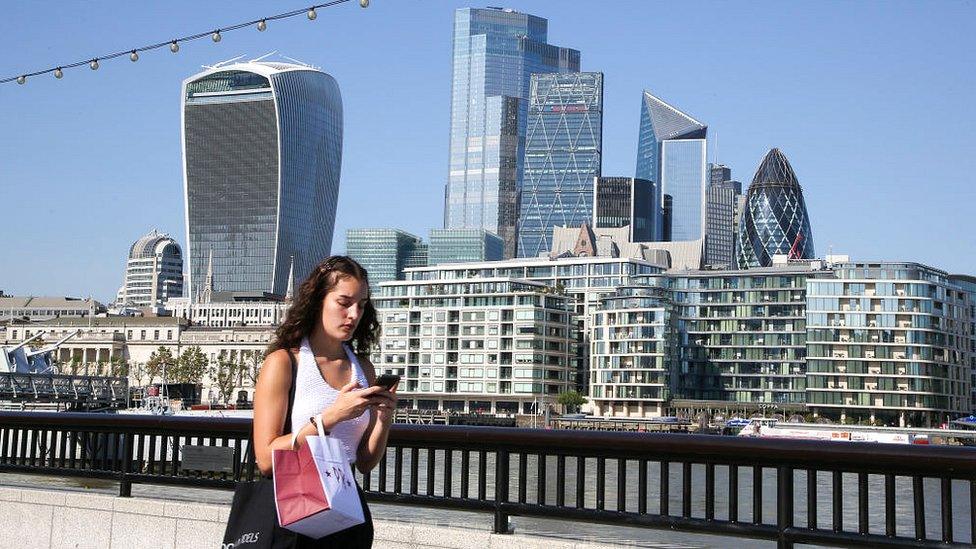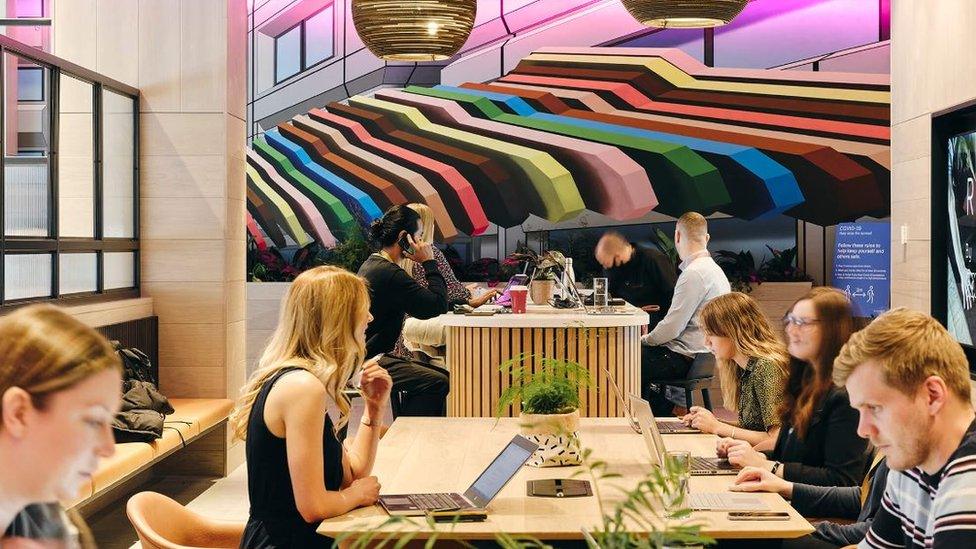Working from home job adverts rise
- Published
- comments

There has been a rise in jobs that advertise working from home compared with before the Covid pandemic, recruitment firm Reed has told the BBC.
Prior to the pandemic, 1% of recruitment firm Reed's job vacancies advertised remote working, but this rose to 5% in 2021.
Many office workers shifted to flexible working during coronavirus lockdowns.
Reed said applications for jobs with remote working shot up, and outpaced the number of vacancies.
But the number of flexible working adverts peaked at the beginning of the year, Reed said.
Jobs advertising "dynamic" or "hybrid" working - that is, where people work from home some of the time - also increased at the start of the pandemic, as did applications for them.
Since then, the percentage of jobs advertising hybrid working has dropped from 9.2% in January to 5.6% in July.
Reed said that this could indicate that employers have not fully embraced flexible working as a permanent feature.
But it could be that dynamic working has now become more widely accepted, and companies may not advertise it, just telling people about it at interview.
The recruiter also said there have been lots of adverts for roles where people need to be working "in person" in recent months as lockdown restrictions ease in industries such as retail, transport and logistics, as well as health and medicine sectors.
Chris Adcock, managing director of Reed Technology, said: "During the pandemic we were forced into home working, and everyone got a bit of a taste for it, and really understood the benefit it could have in their lives.
"We've seen people are twice as likely to apply for a job if it's advertised as remote," he said.
The push for home working is largely coming from younger workers, he added, although "water cooler moments" at the office benefit people's careers.
His remarks echo those of Chancellor Rishi Sunak, who last week told LinkedIn News he doubted he would have done as well if he had started his working life virtually.
The pros and cons of working from home and returning to the office has been a hot topic as the UK emerges from the pandemic.
Early in June, Apple staff launched a campaign to push back against CEO Tim Cook's plans to bring all employees back into the office by early September.
Reed competitor CV-Library, an independent jobs board, also told the BBC the number of roles offering remote working rose between March and July in 2021, compared to 2020.
"Working from home is here to stay and jobseekers are starting to expect flexible working as the norm," said its managing director Matthew Moore.
"If companies want to attract and retain top talent, they need to get on board or will risk losing out on the best candidates on the market."


Jenny Elliot has really enjoyed remote working
'I can control the distractions around me'
Jenny Elliott is a copywriter at children's toy company, Capikooa. She says she was attracted to the job after graduating last July because it offered flexible working options.
The firm is based in the south of England, while Jenny is based in the north.
"What was key was the remote learning and working - so it was open to people who don't live near them, which was ideal. I could get trained, and work, entirely from home despite the business being physically in Cambridge," she says.
"With remote working, I can control the distractions around me and create the ideal environment, which you can't really do in an office. I like working in a quiet space by myself, it takes a lot of pressure off really."
Jenny says she'd like to continue working in this way.
"I'm quite used to it - and although I've never worked in an office, I've really enjoyed my remote working experience."

Technology giant Cisco is rolling out a hybrid working plan that has no mandates for how often employees go into the office.
The firm now expects that less than a quarter of its workforce will want to be in an office for three or more days a week.
Francine Katsoudas, the chief people, policy and purpose officer at Cisco, said: "It's going to be a big change for us."
"Despite the fact that we are a global company, that we have collaboration technology, and that we have a culture of flexibility, this is a big shift, because now all of our employees will be working hybrid, and it's not the exception any more," she said.
"We have to change the way we meet, and the way that we work."
Teams and managers will make decisions about whether or not they need be in the office as a team on the same day, she added.
- Published5 August 2021

- Published26 July 2021

- Published16 June 2021

- Published8 June 2021
